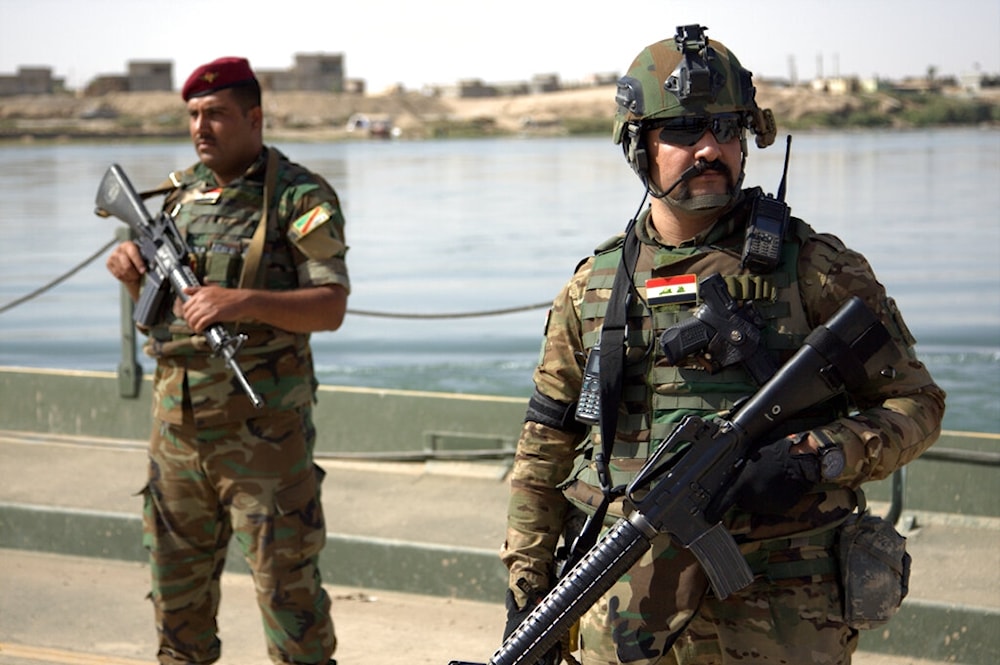Iraqi Joint Operations eliminate prominent ISIS leader
On Thursday, Iraqi forces conducted an operation that successfully eliminated ISIS leader Samir Al-Nimrawi.
-

On this Saturday, October 15, 2016 file photo, Iraqi soldiers secure a temporary pontoon bridge near Qayara Air Base, northern Iraq. (AP)
The Joint Operations Command in Iraq announced on Thursday the elimination of ISIS leader Samir Khader Al-Nimrawi, who was responsible for the transportation of terrorists, weapons, equipment, and explosives across the Iraqi-Syrian borders.
In a statement, Joint Operations clarified that following a thorough investigation and cooperation of security forces and Iraqi intelligence with the Joint Operations Command, an important operation was conducted that successfully eliminated Al-Nimrawi.
Al-Nimrawi, according to the statement, was directly responsible for the killing of many Iraqis, and was one of the perpetrators whose hands were stained with the blood of innocents in al-Anbar.
On March 19, the Iraqi National Intelligence Agency captured a terrorist web consisting of 11 ISIS members in Kirkuk, north of Baghdad.
The statement announcing the operation read, "With exceptional intelligence efforts and field follow-up, units of the intelligence agency responsible for combating terrorism in the Kirkuk Governorate carried out a qualitative operation, which resulted in the arrest of a terrorist network consisting of 11 members from ISIS terrorist gangs."
Iraqi intelligence arrests 2 top-ranking ISIS terrorists
The Iraqi National Intelligence Agency announced on February 24 that it successfully arrested two of the most prominent leaders of the terrorist organization ISIS, in a top-tier operation conducted outside Iraqi soil.
Iraqi intelligence forces expatriated the terrorists to Iraq after launching an operation to track and arrest the wanted individuals, which lasted for several years.
The terrorists were identified as Issam Ali Saidan, also known as "Abu Zeid", and Bashir Ali Saidan, also known as "Abu Ahmad Itisalat." The Agency confirmed in a statement that the arrested terrorists were responsible for managing communication activities for ISIS in the Iraqi city of Fallujah.
In detail, "Abu Zaid" managed ISIS' media network while "Abu Ahmad Istisalat" was tasked with encrypting and managing communications between the organization's leaders. It is worth noting that the Arabic word "Itisalat" directly translates to "communications".
Read more: Four Mossad officials, Peshraw Dizayee among killed in Erbil

 2 Min Read
2 Min Read








